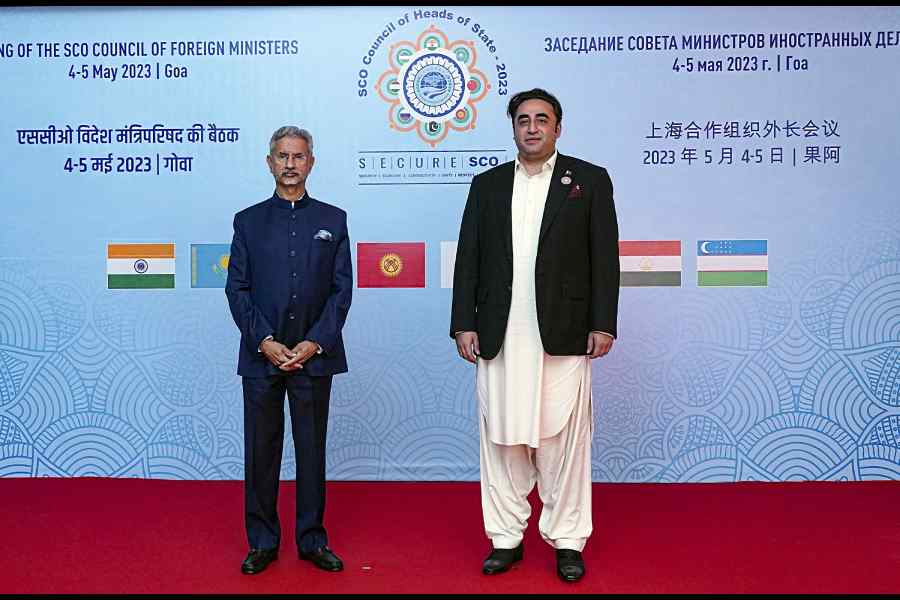Tense words and acerbic comments are not surprising when it comes to India-Pakistan relations. Still, an unseemly spat between India’s external affairs minister, S. Jaishankar, and his Pakistani counterpart, Bilawal Bhutto Zardari, last week has served to underscore just how steep a ravine both sides will need to climb out of in order for ties between the neighbours to improve. Mr Bhutto Zardari was visiting Goa for a meeting of the foreign ministers of the Shanghai Cooperation Organisation, which India is chairing at the moment. Mr Bhutto Zardari’s visit was the first by a Pakistani foreign minister to India in over a decade but no bilateral breakthrough was expected given that diplomatic relations between New Delhi and Islamabad are in deep freeze. However, the occasion did offer an opportunity for both foreign ministers to take baby steps towards re-engaging in diplomacy. Yet neither side appears to have been keen to extend a hand: indeed, Mr Jaishankar and Mr Bhutto Zardari did not even shake hands for the camera. Pakistan’s foreign minister criticised India over its policies on Kashmir, including the abrogation of Article 370. Mr Jaishankar retorted by describing Mr Bhutto Zardari as a spokesman for terrorists.
Their strong words have a history. Last December, Mr Bhutto Zardari had called Prime Minister Narendra Modi the butcher of Gujarat in an apparent reference to the killing of Muslims in the Indian state in 2002. He was responding toMr Jaishankar’s description of Pakistan as the epicentre of terrorism at the United Nations Security Council. Some of this is undoubtedly political theatre. Mr Modi’s Bharatiya Janata Party government has, in particular, adopted a muscular policy towards the country’s western neighbour, even as it struggles to match up to the threat posed by China along the northern border. With national elections in Pakistan due later this year — India goes to polls next spring — more such language from either or both sides of the border would not be surprising. But undiplomatic language has diplomatic consequences. Other SCO members have long been worried that India-Pakistan tensions could paralyse the broader group. Last week’s war of words would have amplified those fears. India is also chair of the G20 this year, with a chance to demonstrate its stature as a nation that can bridge global divisions. A slanging match with a guest only weakens those credentials.











